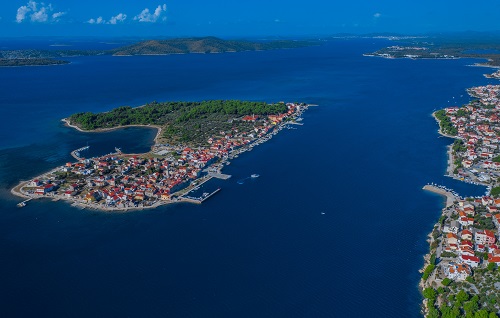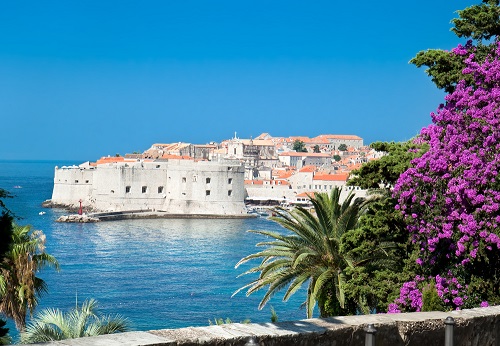Croatia ranks quite highly with regards to its provision of quality healthcare, so if you are an expectant expat, then you should approach maternity care there with confidence, especially if you are planning to use the private sector.Croatian mothers have increasingly been speaking out about maternity care in the public healthcare system, and we will outline some of the issues they’ve experienced below. We will also look in detail at some of your options.
How to decide on a birth plan
A birth plan is a list of what you would like to have happen during labour and afterwards. It is written so that your doctor knows what your wishes and expectations are.
• Where do you want to give birth?
• Who do you want to have with you (e.g. your partner)?
• What kind of birth do you want (e.g. vaginal birth or a Caesarian)?
• Do you need any birthing aids?
• Do you want pain relief, and if so, what kind?
• What kind of birthing environment would you prefer?
Most births in Croatia (99%) take place in a hospital. You may find that you have limited choice, both in terms of the location and the nature of the delivery. You may have to be firm with your doctor over the question of pain relief, for example, and also over the issue of whether or not you have a C-section.
Home birthing is not a common practice, and more alternative forms of birthing, such as water births, are unusual. Zagreb has a private maternity clinic, Maternity Hospital Podobnik, which offers water birthing facilities, birthing stools and other forms of alternative care. The hospital also offers epidurals and other forms of pain relief. Additionally, you have the option of a private suite, in which your partner can stay with you (fathers are not usually permitted to attend births in public maternity units, as there is little privacy and more than one mother may be giving birth in the same room).
Your midwife will assist you in a delivery at hospital, but they are not allowed to assist in home births, according to Croatian law. Their main role is to assist the doctor. They are also not permitted to have independent practices. Most have not had a university education, although Croatia does have midwifery courses at university level.

Croatian maternity care
Maternity care has been in the Croatian news recently, with a prominent MP speaking out about practices that she has termed ‘medieval’. She was given curettage (cervical scraping) without anaesthetic. Pressure group Parents in Action (Roda) started a campaign, #Breakthesilence, to address these and other issues, such as biopsies, medically-assisted fertility procedures, sewing to repair tears after vaginal childbirth, and episiotomies being done without anaesthetic. Croatia is a Catholic country and still has traditional attitudes towards maternity care and women’s health, which may not always accord with current feminist thinking.
Healthcare officials have also pointed out that the country lacks anaesthetists generally, since many left the country for higher pay when Croatia joined the EU. The Ministry of Health has denied these allegations, but has admitted that there needs to be better communication between medical staff and patients, and that there are discrepancies in maternity treatment between hospitals.
If your pregnancy has been confirmed, you should have your first prenatal appointment between eight and 12 weeks of pregnancy. Around the 12th week, your gynecologist should give you a Pregnancy Booklet (Trudnička knjižica). You will then be set up with a schedule for ultrasounds and other scans, as well as routine maternity check-ups. If your pregnancy is deemed low-risk, you will have ultrasounds at:
• 10 and 14 weeks of pregnancy
• 18-22 weeks
• 32-26 weeks
You will then be registered with a local maternity unit, usually at a hospital, and you will undergo increasingly frequent appointments, including:
• A vaginal exam to check the cervix
• Amnioscopy (checking the amniotic fluid)
• CTG trace (recording the baby’s heart rate for 20-30 minutes)
• Ultrasound and/or additional testing
If you are having your maternity treatment under public insurance coverage with the HZZO (the Croatian Institute for Health Insurance), your treatment will be free. Therefore, make sure that your doctor does not charge you.
Costs in the private sector vary depending on whether you are paying by card or cash. Podobnik charges include the following:
• Vaginal birth: 18.500,00 Kn – 20.350,00 Kn (€2,000 – €2,700)
• Water birth: 21.000,00 Kn – 23.100,00 Kn (€2,700 – €3,000)
• C-section: 29.900,00 Kn – 32.890,00 Kn (€3,920 – €4,300)
Your partner will need to pay an excess sum if they want to accompany you, of around 700,00 Kn – 770,00 Kn (€91 – €100). You may need to pay extra for an epidural. Check all costs with the hospital beforehand, as you do not want any unpleasant surprises after the stress of labour.

You may be kept in hospital for as long as five days, but you will be expected to have your baby with you at all times, if medically possible.
If you are planning to give birth privately, make sure that your existing insurance covers maternity care, especially given that you may be staying longer in hospital than planned and costs can escalate.
UNICEF has supported the creation of a network of breastfeeding support, giving help to the Croatian Association of Breastfeeding Support Groups. They have organised training for neonatal nurses for home visits, with a particular emphasis on mothers of children with developmental difficulties and premature babies. At the moment, there are more than 200 breastfeeding support groups in Croatia, under the programme “Baby-Friendly Maternity Hospitals.” UNICEF has been raising awareness of the importance of breastfeeding in maternity care.
Under Croatian law, employed and self-employed pregnant women are entitled to maternity leave 28 days prior to the expected date of birth (in case of complications, it may be taken 45 days prior to the expected date of birth) up to 70 days after delivery.
Will the baby be a Croatian citizen?
Your baby will only be a Croatian citizen if one of their parents is Croatian.

